As an Amazon Associate, we earn from qualifying purchases. Some links may be affiliate links at no extra cost to you. Although our opinions are based on curated research, we haven't used these products. Articles generated with AI.
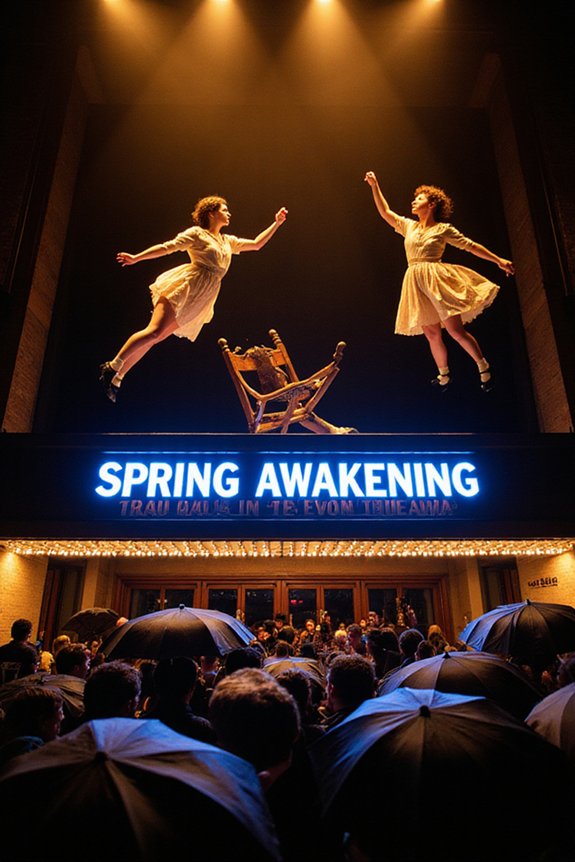
Spring Awakening Takes Broadway by Storm Again
The revival of *Spring Awakening*, particularly the Deaf West production, has reinvigorated Broadway through its unique blend of Deaf and hearing talent. This version employs American Sign Language alongside spoken English, creating an inclusive theater experience. The original production won eight Tony Awards, highlighting its significant impact on rock musicals. Upcoming regional adaptations, like the Scottsdale 2025 revival, aim to maintain the show’s relevance in discussing youth struggles and societal issues. Further insights into these developments are available below.
Key Takeaways
- *Spring Awakening* redefined musical theatre with its innovative integration of Deaf and hearing actors in the Deaf West Broadway revival.
- The show won eight Tony Awards and remains a pivotal work influencing the rise of rock musicals on Broadway.
- Regional and community productions continue to thrive, fostering youth talent and crucial conversations about societal issues.
- The upcoming Scottsdale revival aims to elevate the local theater scene with dynamic performances and a documentary on the show’s origins.
- *Spring Awakening* maintains cultural relevance by addressing mental health, reproductive rights, and the importance of open dialogue among youth.
The Deaf West Broadway Revival
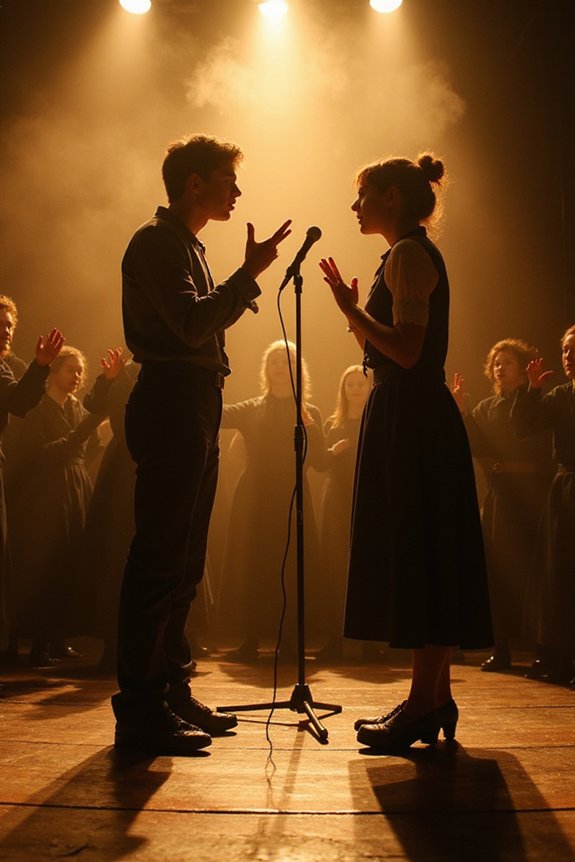
When examining the Deaf West Theatre revival of Spring Awakening, it becomes clear that this production exemplified a groundbreaking approach to musical theatre. Opening on September 27, 2015, at the Brooks Atkinson Theatre, it featured a diverse cast of 28 that included both Deaf and hearing actors, promoting deaf representation in a traditionally auditory medium.
The performances used simultaneous American Sign Language (ASL) and spoken English, enhancing musical accessibility for wider audiences. Choreography by Spencer Liff skillfully integrated movement with ASL, showcasing the unique dynamics of the ensemble. Directed by Michael Arden, the revival garnered critical acclaim for redefining perceptions of Deaf talents in musical theatre, ultimately inspiring important conversations around disability representation in the arts.
Regional and Community Theatre Productions
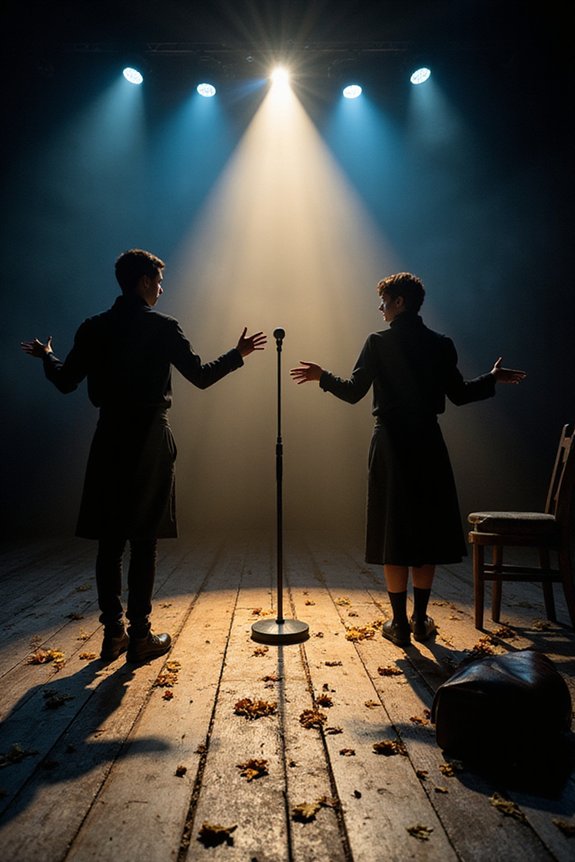
Numerous regional and community theatres across the United States have embraced *Spring Awakening*, making it a prevalent choice for local productions. This musical often undergoes regional adaptations, which tailor the scale and budget to suit community resources while maintaining its core themes of adolescence and self-discovery.
- Many community theatres stage Spring Awakeningdue to its emphasis on youth talent, providing essential performance opportunities.
- Adaptations may involve scaled-down sets and costumes, focusing on storytelling and character development.
- These productions facilitate community engagement, inviting discussions around themes of rebellion and emotional struggles.
- Though some face challenges with the show’s mature content, thoughtful direction allows local groups to align performances with community standards, ensuring broad accessibility and relevance.
Scottsdale 2025 Revival
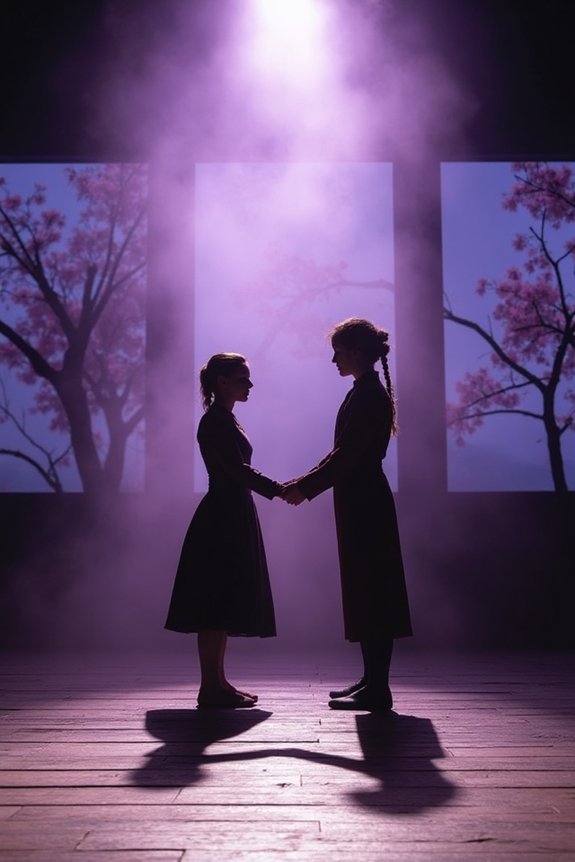
Key elements of the revival include: a bold direction by Casey Likes, who also stars as Melchior, and a music direction led by Alan Plado, featuring a live band. The casting choices align with contemporary themes, showcasing actors like Carson Stewart as Moritz and Jessie Jo Aka as Wendla.
The production emphasizes audience engagement through innovative elements, such as a pre-show documentary highlighting the show’s origins and reinterpretation, enhancing the theatrical experience.
Scheduled from April 4 to April 13, 2025, at Scottsdale Community Players, this revival aims to elevate Arizona’s theater scene by integrating strong performances with cinematic elements, ultimately creating a dynamic cultural event.
Original Broadway Production and Accolades
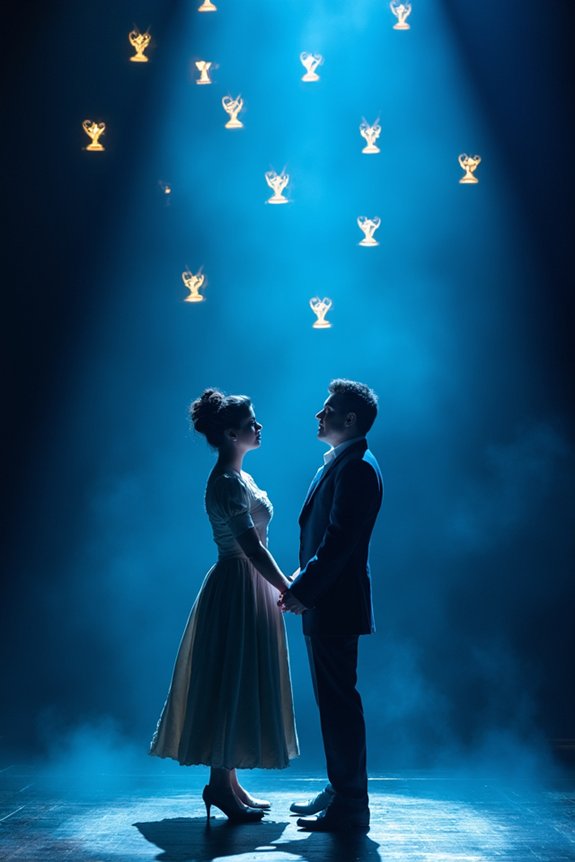
Key accolades included:
- Tony Awards: Eight wins, covering Best Musical, Direction, Book, Score, and Featured Actor.
- Drama Desk Awards: Four wins.
- Grammy Award: Recognized for the original cast album.
The musical’s profound impact on the genre bolstered the rise of rock musicals on Broadway, establishing a lasting legacy within the theatrical community.
Thematic Exploration in *Spring Awakening
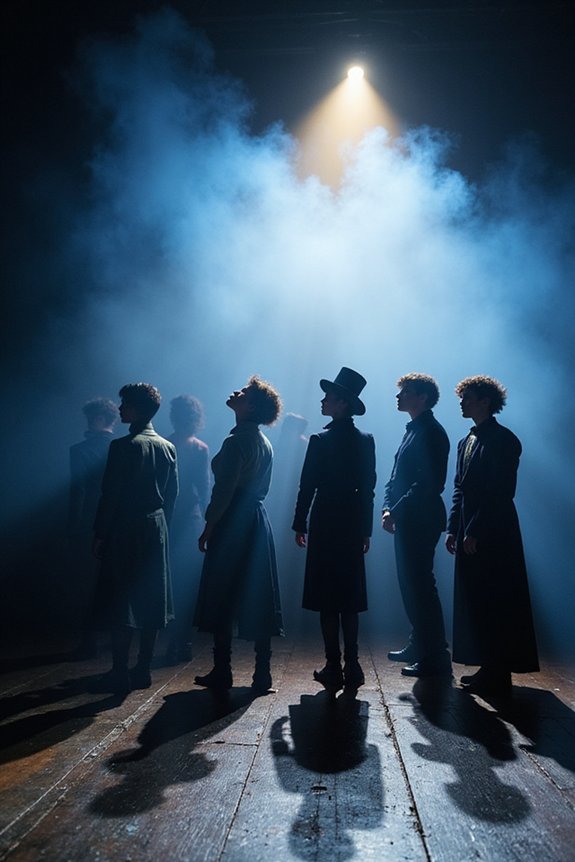
Additionally, the exploration of *parental communication* illuminates the generational gaps that hinder understanding, creating emotional distances marked by ignorance and repression. The show critiques authoritarian figures and highlights the need for empathy and open dialogue. Through its themes, *Spring Awakening* serves as both a reflection and a critique of the challenges faced by today’s youth in traversing their identities and desires.
Musical Composition and Artistic Influences

Utilizing a small, electric ensemble instead of a Broadway orchestra, Sheik’s rhythmic and chordal energy supports characters’ internal monologues. The integration of folk influences encourages intimacy, allowing the audience to connect deeply with the story. By modernizing the source material while preserving its core essence, *Spring Awakening* successfully bridges historical and contemporary sensibilities, making it resonate with diverse audiences.
Impact of Accessibility in Theater
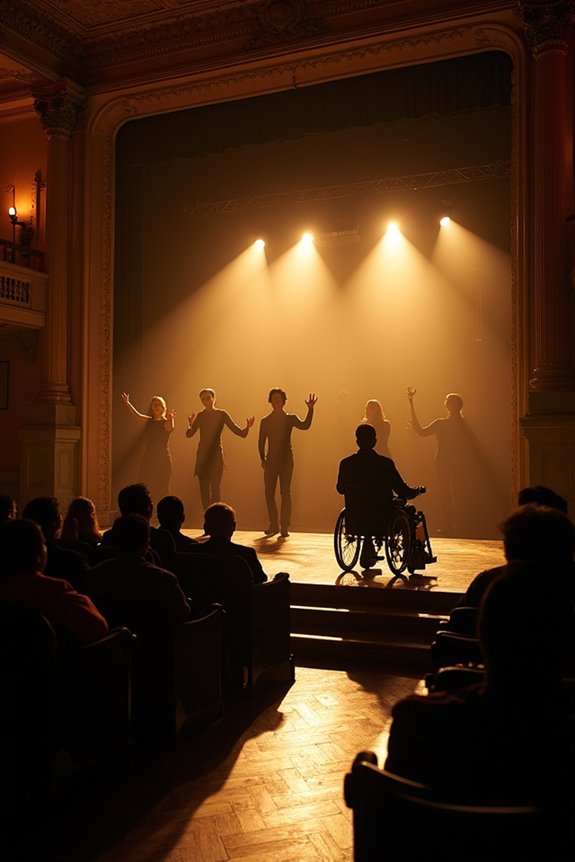
Key aspects include:
- Open-captioned shows, allowing hearing audiences to engage fully.
- Creative captioning strategies, presented as chalkboard lessons, ensuring broader understanding.
- Extensive accessibility guides for patrons needing mobility assistance.
These efforts not only address existing gaps but also promote a diverse theater experience for all audiences, enhancing community inclusion.
Ongoing Cultural Relevance and Dialogue
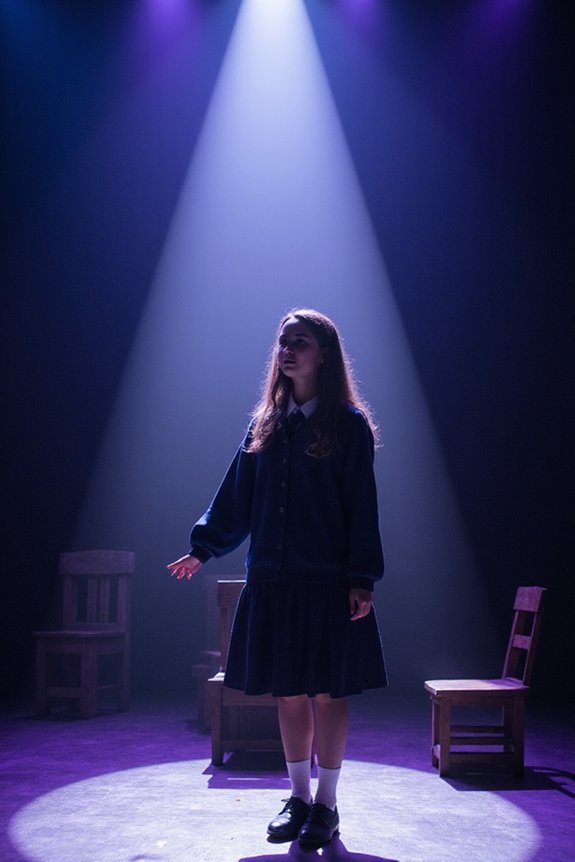
- Themes remain pertinent as they confront critical societal reflection on issues such as mental health, reproductive rights, and LGBTQ+ acceptance.
- The poignant narrative highlights the consequences of silence surrounding these topics, encouraging open discussions in today’s society.
- This ongoing engagement demonstrates Spring Awakening’sability to connect with the experiences of youth, bridging the 19th-century setting with contemporary challenges.
Through revivals and critical acclaim, *Spring Awakening* firmly establishes itself as a conduit for relevant and essential conversations.
Frequently Asked Questions
How Can I Purchase Tickets for Upcoming Productions?
To purchase tickets for upcoming productions, individuals should explore online ticketing platforms offering group discounts. By filtering options, they can secure seats that foster a shared experience, enriching their sense of community and connection.
Are There Age Recommendations for *Spring Awakening* Performances?
What age restrictions apply to *Spring Awakening* performances? Generally, parental guidance is advised, with recommendations typically set for ages 13 to 14, ensuring maturity for audiences confronting its complex, mature themes and explicit content.
Where Can I Find Cast and Crew Bios for Each Production?
Finding cast details and crew insights for each production can be accomplished by checking official theater websites, digital programs, and resources like Playbill or IBDB, ensuring a thorough understanding of the talented individuals behind each performance.
Is There a Soundtrack Available for the Recent Revivals?
The recent revivals of the musical do not feature distinct soundtrack details. Instead, they highlight the original music, emphasizing its importance, ensuring fans continue to engage deeply with the beloved themes and melodies of the original production.
Are There Any Special Events or Talkbacks Associated With the Productions?
Special events enhance audience engagement considerably, creating opportunities for connection. With post-show conversations and community spotlight events, attendees can mingle and discuss themes, fostering a welcoming atmosphere that encourages shared experiences and belonging within the community.



